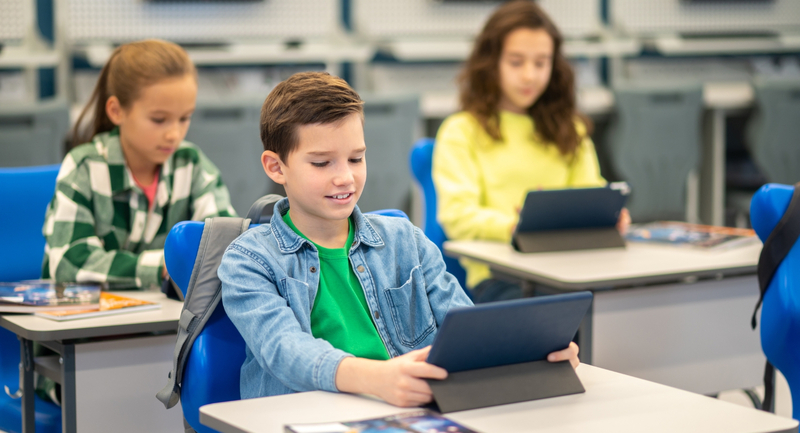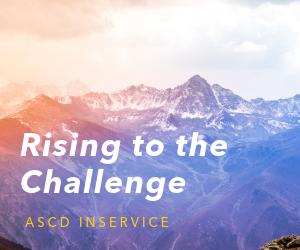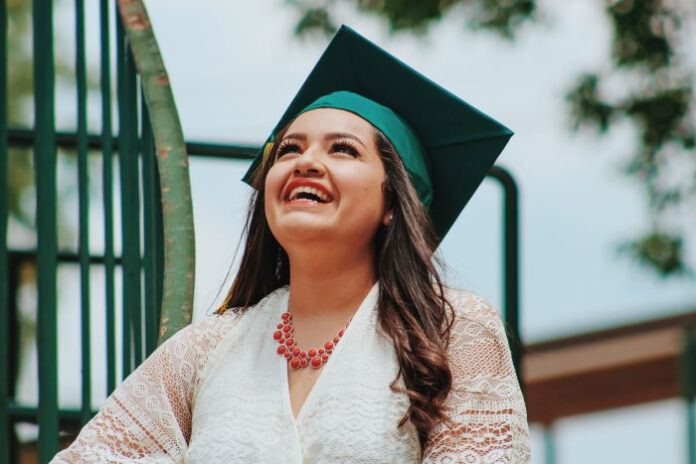Today, Brandon P. Fleming carries himself with confidence: He often wears a sharp multicolored bow tie and a broad smile, and he exudes the effusive pride of an educator whose students have accomplished much both academically and as people. But it wasn’t always this way. As a child, he was the victim of domestic abuse and absent parenting. In his early high school years, Fleming sold and used drugs, jeopardizing a college basketball scholarship and his mother’s livelihood in the military. But he was able to turn his life around: He found a teacher who believed in him, found the voices of the Harlem Renaissance to connect with, and ultimately discovered a new purpose as a teacher first and later as a debate coach. Fleming now coaches Black students in Atlanta as founder and CEO of the Veritas School of Social Sciences, an academic training institute for students and educators in Metro Atlanta, and is the author of a widely praised memoir.
In recognition of this story and his impact on students, Fleming will be a keynote speaker at the 2023 ASCD Annual Conference in March. To provide a preview, we recently spoke to him about his journey and how he believes educators can create more opportunities for underserved students.
In your book Miseducated: A Memoir you describe Mr. Mills, the first teacher in high school to truly inspire you, as key to your development as a student “scholar.” What did Mr. Mills have that other teachers didn’t?
This speaks to the power of representation. When I first encountered Mr. Mills, a Black male teacher, it was my first time as a young Black man imagining that I could be something other than what I was, what I associated with Black manhood. I had internalized stereotypes of Black males that associated us with violence, drugs, alcohol, and athletics—that's who I thought we were. He disrupted that for me because he showed me something that I had never seen before. I thought he was weird. I would ask him questions like, "Why do you talk like that?" Because, in my mind, he was talking white. I thought only white people used eloquent language—again, that’s how limited my perspective was.
Young people cannot be what they cannot imagine. He broadened my imagination. That's when I realized that I could be something different. He taught me how to tie a bow tie, which is why, if you've seen my videos or photographs, I'm always in a bow tie. If you ask teens to describe the first thing that comes to their mind about their teacher, it usually will not include style, eloquence, or many of the things that appeal to young people. But Mr. Mills stood out in this way.
Every industry designs itself to meet the needs and desires of the client. Companies completely fashion themselves according to the interests of the people that they are trying to reach. Educators don't always do that, unfortunately. We don't expect ourselves to meet people where they are. We expect people to come to us. And that's not how businesses thrive. Mr. Mills’ ability to present himself in a different way created a point of connectivity for me. That's what engagement is all about. Engagement is about our ability to create different connecting points. A teenager thinks students and teachers are not the same. We don't have anything in common, they think. We don't speak the same language. We don't like the same things. Therefore, I'm not interested in what you have for me. The truth of the matter is most teenagers are not interested in math. They are not interested in English. Teachers are interested in those subjects. We love that stuff, but they don't love that stuff. Our job is to make them care about what we care about. That's what Mr. Mills did for me.
You often talk about how you pursued basketball because it seemed to you like the only career path you could aspire toward. What can schools in historically underserved communities do to bring exposure and affirmation to more career pathways?
Representation. Young people only dream to the level at which they've been exposed. So, if I've never seen anything beyond Atlanta, Georgia, I can't dream of anything beyond Atlanta. But the moment I'm exposed to someone who has seen beyond the place that I've been limited to, especially someone who looks like me, who talks like me, and allows me to see that there's more, that's when my aspirations will begin to broaden. There's so little exposure to opportunities and possibilities for at-risk youth in schools.
Young people cannot be what they cannot imagine.
We see young people wanting to be athletes because they see athletes at the park every day or that's what is glorified in their schools or school culture. As educators, when we know how to speak their language or bring in people from other walks of life who identify with them culturally, that's when we’ll have their ear and will be able to share with them other opportunities.
As a debate coach, you created a pipeline to college by introducing young Black scholars in Atlanta to debate. In Miseducated, you refer to debate as key to your pedagogical approach. What specifically does debate awaken in students on their path to academic success?
Debate makes learning personal. There is nothing that people will become more passionate about than their own perspectives. When we think about making students passionate about our subjects, we have to make our subjects about them. So much of what students learn, they cannot relate to at face value. When you're teaching Black students about the Enlightenment period, they can't necessarily relate to Thomas Hobbs. They can't relate to John Locke and this movement that took place in Great Britain. But when you activate their opinions, they start to own their education. Learning becomes personal. Because even though the content does not necessarily include me and my culture, the moment you invite my perspective, I now have a stake in it.
That's what debate does. It puts young people in a position where they actually have a stake in the content because they are able to generate ideas. You don't have to teach young people how to debate, you don't have to teach people how to argue. Even someone who is demure or someone who is more passive or laid back, if you get them arguing about their opinions on a subject, they'll get a lot more excited and engaged. At the heart of debate is engagement—not just for the student and teacher, but engagement from peer to peer.
Having been moved to action by education speakers in your past, and then becoming a speaker yourself, what is the main message that you want educators to take back to their classrooms?
What I want everyone to remember is that, as educators, we come together because we're all interested in one thing—and that’s positive student outcomes. Student outcomes measures our efficiency and efficacy as educators. So, we all want to know: How do we get students to perform better? I want people to walk away with the understanding that loving teaching first is the key to driving student performance. If we love what we do, students will follow our lead and naturally gravitate to new passions and career pathways.
Editor’s note: This interview has been edited for space.








